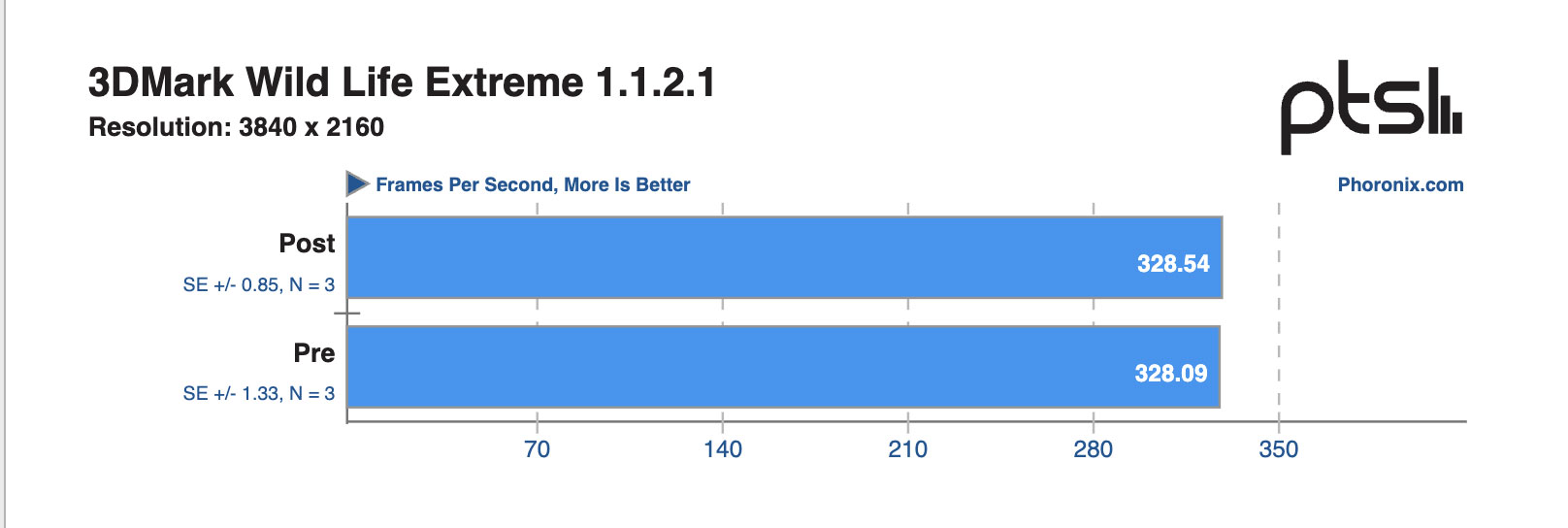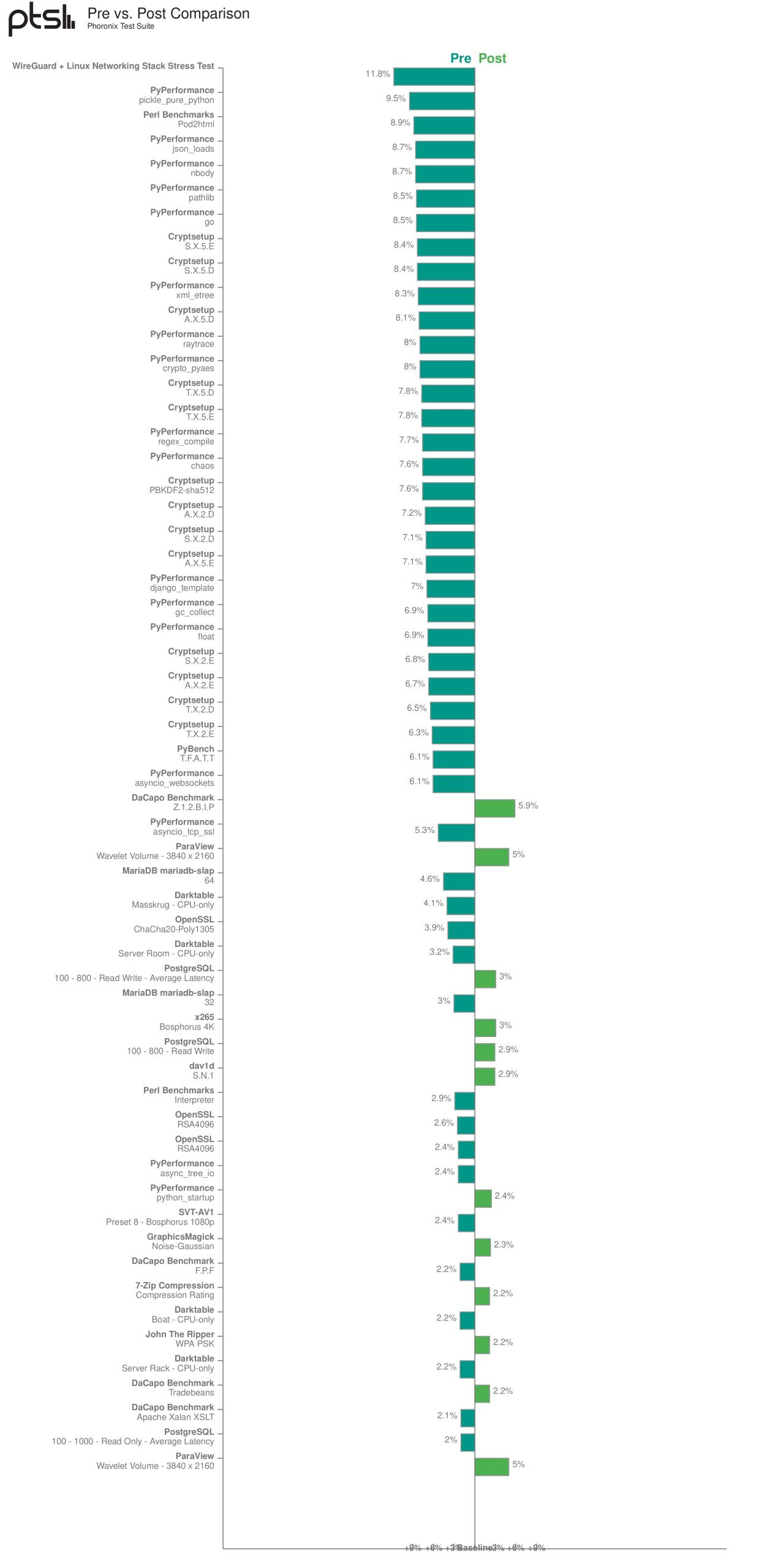New Intel microcode '0x129' tested on Linux, did not show a major impact on performance
Intel recently released a new microcode patch to address instability issues of 14th Gen and 13th Gen CPUs. After a long series of "updates", it appears that the "0x129" patch solved the problem for Intel, in that the microcode was benchmarked on the Windows environment.
Recently, the Phoronix team also tested Intel's latest microcode patch on Linux to see if there were any notable performance changes on this platform.
Interestingly, Phoronix decided to perform 188 benchmark tests to measure the effectiveness of the new microcode. The result is then compared with microcode '0x125', which is the predecessor of '0x129'. Although the benchmarks performed are quite diverse, Phoronix only mentions a few typical cases, as the results are consistent across the entire list, but of course there are some exceptions.

Typically with 3DMark Wild Life Extreme, the new microcode shows no signs of performance degradation and there is a small but not significant increase in FPS.
Notable environments where the CPU is tested include 7-Zip Compression, PyPerformance, PyBench, Crypsetup, and Perl Benchmarks. All of these applications test a certain component of the processor, whether it's the FPU or the ISA. So, it can be said that the benchmark results have given us a better overview of the instability of Intel 14th and 13th generation CPUs, and the fact that it has been mitigated to a large extent. than.

However, there was a warning regarding WireGuard, which recorded an 11.8% drop in performance. This drop may be related to how single-thread performance is affected by the new microcode, although this time not as large. We'll have to wait and see how the new microcode performs in the long run, or whether it causes a perceptible performance degradation.
You should read it
- ★ Microsoft and Intel cooperated to provide microcode updates for the CPU via Windows updates
- ★ Top 5 best Intel CPUs 2022
- ★ What's the difference between Intel Core and Intel Core X CPUs?
- ★ Intel ARC Xe-HPG 'Alchemist' GPU Leak: High Performance, Launching in 2022
- ★ Unfair competition, Intel was fined EUR 1.06 billion in Europe